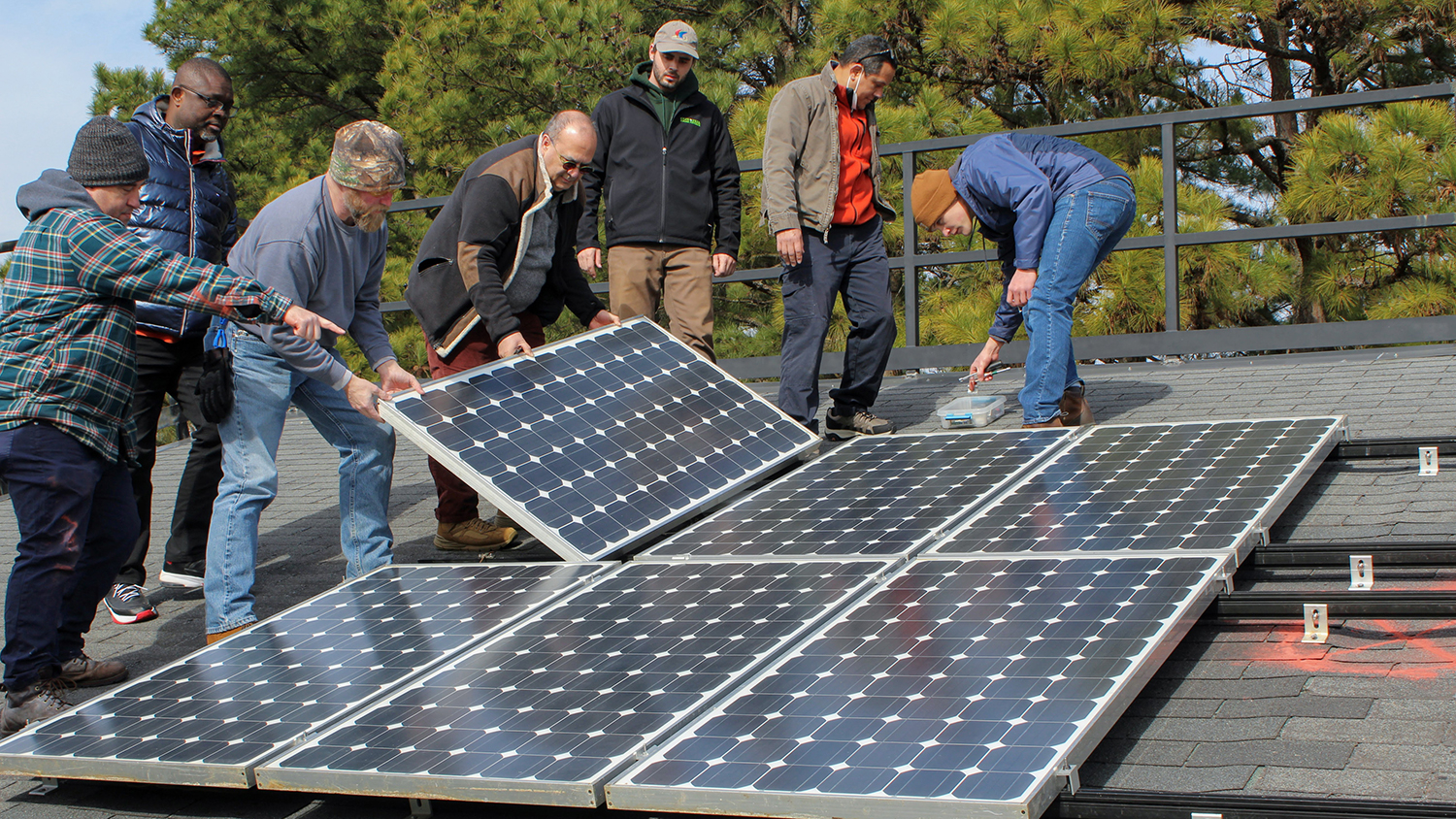Solar and (much) more: NC Clean Energy Technology Center marks 35 years

The North Carolina Solar Center was established in 1987 as an outgrowth of the Solar House, an educational resource and laboratory on the NC State University campus designed to demonstrate how solar energy could power an individual home.
In the ensuing years, the center contributed to making the state a national leader in solar energy by helping to eliminate roadblocks to use. The center’s staff trained the workforce needed to install and maintain solar power systems. They helped lawmakers understand the policy fixes needed to clear the way for implementation. And staff members taught local firefighters what they need to know about a new solar farm in their district.
As the solar energy sector has matured, the work has changed to include studying how aging solar panels can be safely disposed of and how to help consumers choose wisely when dealing with companies that want to install solar panels on their home.
Over the years, the center expanded its scope to many other areas of clean energy, including the transition to a smarter power grid, adoption of hybrid and electric vehicles, green building and increasing electric generation from wind, biomass and other sources. Its name was changed to the NC Clean Energy Technology Center (NCCETC) in 2014.
No matter the technology, the center’s role is to help speed up its implementation through training programs, policy research, outreach and economic development.
“If you want to get something out of the lab and into the real world, odds are we are having a hand in it these days,” said Steve Kalland, executive director of NCCETC.
Among the center’s major roles is maintaining the Database of State Incentives for Renewables and Efficiency (DSIRE). Funded by the U.S. Department of Energy and run by the center since 1995, DSIRE is the most comprehensive source of information on incentives and policies that support renewables and energy efficiency in the United States.
The center also hosts the annual State Energy Conference of North Carolina at the McKimmon Center on campus. Over the last six years, NCCETC has grown the conference from around 400 to more than 900 attendees from a variety of backgrounds. Since 2017, it has also held an annual Sustainable Fleet Technology Conference & Expo to expand education, training and networking on advanced clean transportation technologies.
The center marked 35 years in December 2022, and the worry about possible impacts from climate change has made clean energy transformation a priority for leaders at home and abroad. NCCETC is perfectly positioned to continue driving that change and is adding fuel cells, fusion and hydrogen energy generation and small modular nuclear reactors to its research portfolio.
“A lot of new energy technologies are coming, and the role of the center is to move these new technologies forward,” Kalland said.
- Categories: